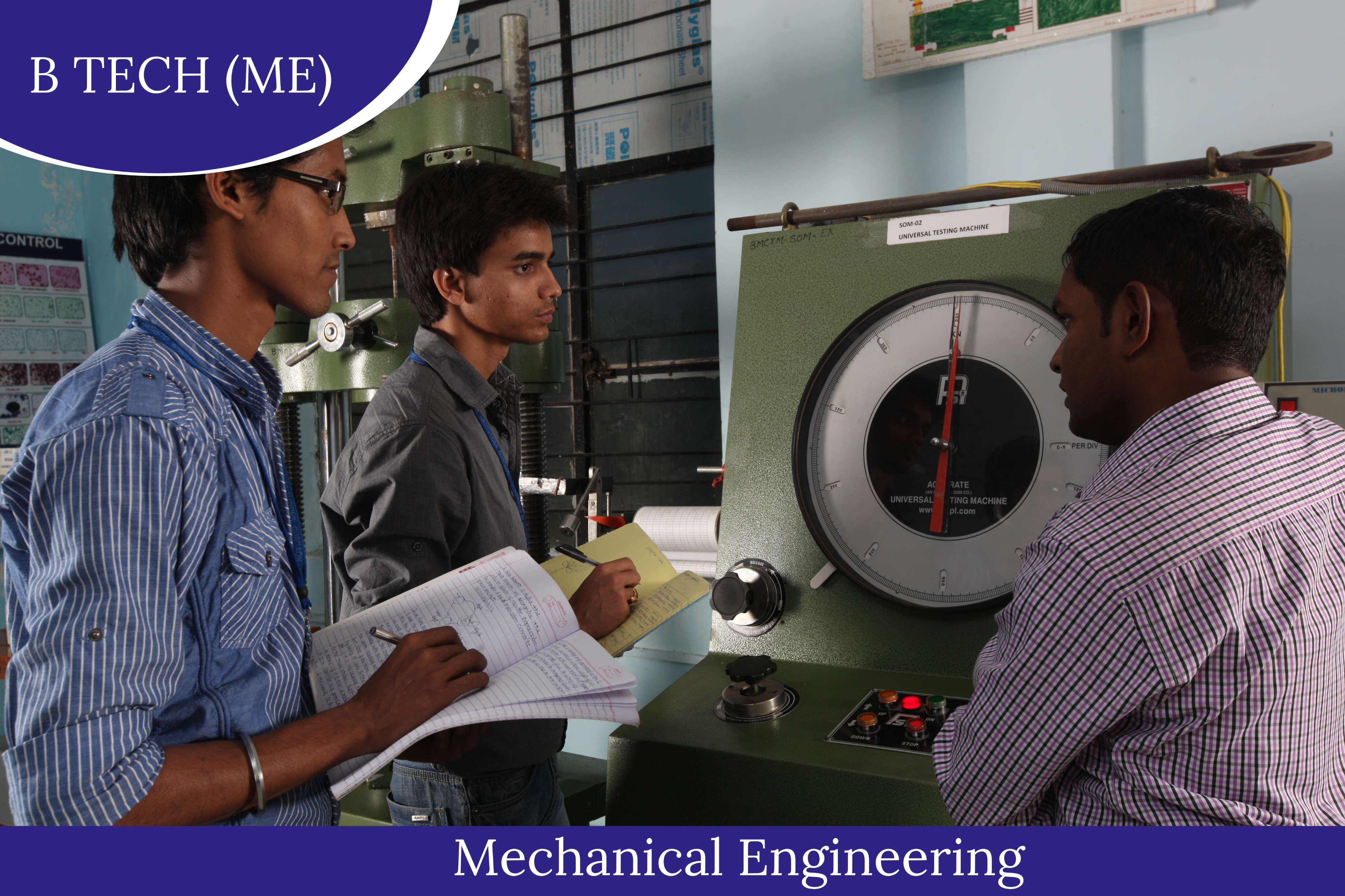B TECH (ME)
A Bachelor of Technology (B.Tech) in Mechanical Engineering (ME) is a four-year undergraduate program that covers a wide range of topics in mechanical engineering. Below is a concise overview of the core courses typically included in this program, along with their benefits.
Core Courses and Benefits
-
Engineering Mechanics
- Description: Basics of statics and dynamics, including force systems, equilibrium, and kinematics.
- Benefits: Develops a strong foundation in understanding how forces affect static and moving bodies.
-
Thermodynamics
- Description: Principles of energy, heat, and work, including the laws of thermodynamics and their applications.
- Benefits: Essential for understanding energy systems and their efficiency, which is critical in many engineering applications.
-
Fluid Mechanics
- Description: Study of fluid properties, fluid statics, fluid dynamics, and flow measurement.
- Benefits: Provides the ability to analyze and design systems involving fluid flow, such as pipelines and air ducts.
-
Material Science and Engineering
- Description: Study of material properties, material selection, and failure analysis.
- Benefits: Equips students with knowledge to choose appropriate materials for different engineering applications.
-
Manufacturing Processes
- Description: Overview of various manufacturing techniques, including machining, casting, welding, and additive manufacturing.
- Benefits: Develops skills in designing and optimizing manufacturing processes for different products.
-
Strength of Materials
- Description: Concepts of stress, strain, and deformation in materials under various loading conditions.
- Benefits: Provides the ability to ensure structural integrity and safety in engineering designs.
-
Mechanical Vibrations
- Description: Study of vibrational systems, including free and forced vibrations and damping.
- Benefits: Essential for designing systems that minimize or control vibrations to avoid failure and ensure comfort.
-
Heat Transfer
- Description: Principles of conduction, convection, and radiation, and their applications in engineering.
- Benefits: Critical for designing efficient thermal systems, such as heat exchangers and cooling systems.
-
Machine Design
- Description: Process of designing mechanical components and systems, considering factors like stress, fatigue, and ergonomics.
- Benefits: Develops skills in creating reliable and efficient mechanical designs.
-
Computer-Aided Design (CAD)
- Description: Use of CAD software for creating detailed engineering drawings and 3D models.
- Benefits: Enhances the ability to visualize and design complex mechanical systems with precision.
-
Automobile Engineering
- Description: Fundamentals of vehicle design, engine systems, transmission, and aerodynamics.
- Benefits: Prepares students for careers in the automotive industry by understanding vehicle dynamics and design principles.
-
Robotics and Automation
- Description: Principles of robotic systems, automation technologies, and control systems.
- Benefits: Equips students with knowledge to design and implement automation solutions in manufacturing and other industries.
Course Benefits
- Strong Technical Foundation: Comprehensive understanding of mechanical engineering principles.
- Problem-Solving Skills: Enhances analytical and critical thinking abilities to tackle complex engineering challenges.
- Career Opportunities: Broad job prospects in industries such as automotive, aerospace, energy, manufacturing, and robotics.
- Hands-On Experience: Practical experience through labs, projects, and internships.
- Innovation and Research: Encourages creativity and advanced study in areas such as renewable energy, advanced materials, and smart manufacturing.
- Versatility: Diverse electives allow specialization in areas of interest like biomechanics, thermal engineering, and fluid dynamics.
